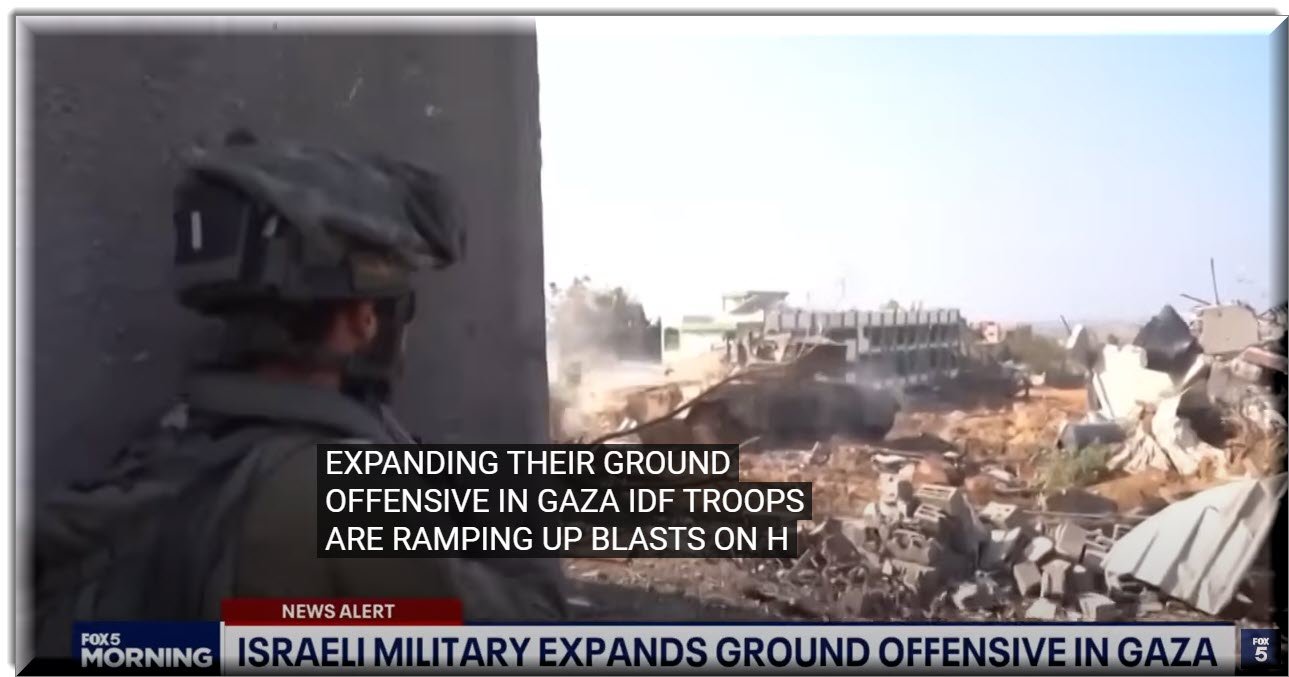Israeli Military’s Expanding Ground Offensive in Gaza: A Closer Look at the Complexities and Consequences

Israeli Military’s Expanding Ground Offensive in Gaza: A Closer Look at the Complexities and Consequences In recent days, the Israeli military has launched a significant ground offensive in the Gaza Strip, escalating an already tense situation and drawing international attention. The offensive aims to target Hamas militants and infrastructure, but as the conflict intensifies, it is crucial to examine the complexities and potential consequences of such escalated military action. This article aims to provide a comprehensive analysis of these developments, shedding light on the various aspects of this ongoing conflict.
Historical Background:
The Israeli-Palestinian conflict is deeply rooted in historical grievances, territorial claims, and the desire for self-determination. Years of violence and failed negotiation attempts have left deep scars on both sides. In the case of the Gaza Strip, Hamas’s control and continuous rocket attacks into Israel have prompted military responses, leading to cycles of violence and suffering for civilians caught in the crossfire. The complexities of this conflict cannot be simplified, as decades of unresolved issues lay the groundwork for the current situation.
The Ground Offensive:
The decision to expand the Israeli military’s ground offensive in Gaza demonstrates a tactical shift in Israel’s response to the escalating violence. This move aims to eradicate Hamas militants and their extensive underground tunnel network, which has been used to smuggle weapons and launch attacks on Israeli soil. Israeli forces have faced significant challenges, including a dense urban environment that increases the risk of civilian casualties and heightened tensions.
Humanitarian Concerns:
Operation Protective Edge, as the Israeli military calls it, inevitably raises concerns about civilian casualties. Gaza is one of the most densely populated areas in the world, and any military operation in such an environment poses inherent risks to innocent lives. Despite Israel’s assertion that efforts are made to minimize civilian harm, reports of civilian casualties continue to surface, drawing condemnation and concern from international observers. The disproportionate impact on Gaza’s civilian infrastructure, like hospitals and residential areas, has drawn criticism, further deepening the humanitarian crisis.
Regional and International Reactions:
The expanding ground offensive has reverberated across regional and international lines, prompting varying reactions. While some countries, including the United States, have shown support for Israel’s right to defend itself against Hamas, others have condemned the military operation, highlighting the disproportionate use of force and the resulting civilian casualties. Calls for an immediate ceasefire and renewed diplomatic efforts have been made by the United Nations and other international bodies, emphasizing the urgent need to prevent further bloodshed.
Implications for Peace:
The current escalation undermines the prospects of achieving lasting peace between Israel and Palestine. As violence spirals, trust erodes, and hardliners on both sides gain momentum, reconciling the long-standing disputes becomes increasingly challenging. The expanding ground offensive may temporarily dent Hamas’s military capability but fails to address the underlying factors fueling the cycle of violence. The absence of a diplomatic, long-term solution only perpetuates the vicious cycle, enabling extremist groups to thrive in such hostile environments.
Future Scenarios:
In navigating this complex conflict, it is essential to consider the potential consequences of a prolonged offensive. While Israel may secure short-term gains by degrading Hamas’s military capabilities, such actions often have unintended consequences. Escalating violence could radicalize Palestinian communities, further destabilizing the region and empowering extremist elements. Additionally, civilian casualties and the humanitarian crisis risk generating backlash in the international community, straining diplomatic relations and potential future negotiations.
As the Israeli military expands its ground offensive against Hamas in Gaza, the complexities and consequences of such actions demand careful consideration. While Israel emphasizes its right to self-defense, it is crucial to weigh the human cost, the impact on civilians, and the potential long-term implications for peace in the region. The cycle of violence, driven by historical grievances and complex political dynamics, requires a genuine commitment to diplomatic efforts and long-term resolutions. Bringing an end to the suffering of both Israelis and Palestinians must be at the core of any sustainable solution to this enduring and deeply entrenched conflict.
Throughout his career, Roy Swire has remained true to his roots, using his artistry to inspire and uplift others. Whether through his music, writing, or activism, he continues to make a meaningful impact on the world, proving that art has the power to transcend boundaries and unite people from all walks of life.
Related News

The Democrats Are Starting To PANIC!!!
Spread the love Stay Connected to Dr. Steve moving forward on the new Turley TalksRead More
A tanker plane crash has killed a firefighting pilot in Oregon as Western wildfires spread – The Associated Press
Spread the love A tanker plane crash has killed a firefighting pilot in Oregon asRead More
